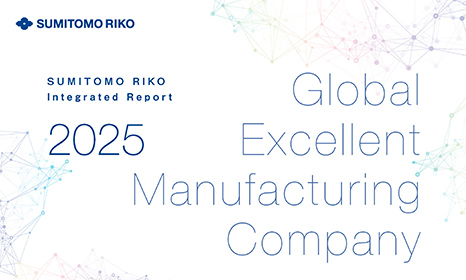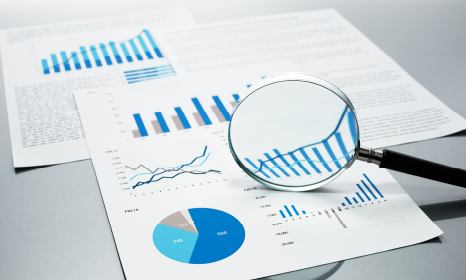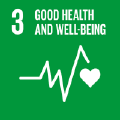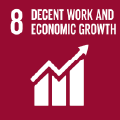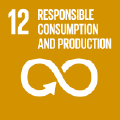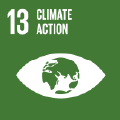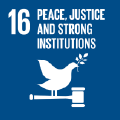CSR Activities on Supply Chain
Shareholders and Investors, Suppliers and Other Trade Partners
Strengthening the Supply Chain
Declaration of Partnership Building
In March 2022, our company formulated and announced the "Declaration of Partnership Building" recommended by the Cabinet Office and the Small and Medium Enterprise Agency. In accordance with this declaration, we will promote cooperation and coexistence with our business partners in the supply chain and work to add value to the entire supply chain.
Monitoring of the status of CSR activities
To practice socially responsible procurement together with our suppliers, we request our suppliers to promote activities that adhere to the Sumitomo Riko Group Supplier CSR Guidelines issued in 2014. Since fiscal 2016 we have been conducting CSR questionnaire surveys of our suppliers as a tool for them to review the extent to which they are compliant with codes of conduct on CSR, and to identify current and future issues. In FY2023, we conducted a survey of our suppliers, who account for 90% of our domestic procurement value, to respond to changes by adding questions on human rights, the environment, and other areas that have become increasingly demanding in recent years.
Through these activities we will work to establish a more robust supply chain by deepening communication with our suppliers and supporting their efforts, as well as informing them of our CSR procurement policy.
Through these activities we will work to establish a more robust supply chain by deepening communication with our suppliers and supporting their efforts, as well as informing them of our CSR procurement policy.
CSR Survey Implementation Status (Cumulative)
| Result for FY2017 to FY2024 | Summary | |
|---|---|---|
| Subject suppliers and number of suppliers | Domestic (non-consolidated): 465companies Domestic Group: 230companies Overseas Group: 62companies |
|
Legal, Regulatory and Contract-related Matters
Environmentally conscious procurement
Our Green Procurement Standards for Suppliers identify "prohibited substances" and "substances for which monitoring is required" as defined by laws and regulations as well as additional substances in those categories specified by our customers. The Green Procurement Standards for Suppliers have been revised as necessary to reflect changes in environmental regulations.
In response to the enforcement of the REACH (Registration, Evaluation, Authorization and Restriction of Chemicals) EU Regulations, we have required our suppliers to observe the REACH Regulations since January 2008. We also hold briefings for suppliers of materials and components. In these ways, we are striving to raise awareness of our suppliers about REACH and ensure compliance.
At Sumitomo Riko, we will continue reviewing our Green Procurement Standards for Suppliers to reflect changes in environmental regulations in Europe and around the world, and promote a shared understanding among our customers and suppliers.
In response to the enforcement of the REACH (Registration, Evaluation, Authorization and Restriction of Chemicals) EU Regulations, we have required our suppliers to observe the REACH Regulations since January 2008. We also hold briefings for suppliers of materials and components. In these ways, we are striving to raise awareness of our suppliers about REACH and ensure compliance.
At Sumitomo Riko, we will continue reviewing our Green Procurement Standards for Suppliers to reflect changes in environmental regulations in Europe and around the world, and promote a shared understanding among our customers and suppliers.
Sustainable procurement of natural rubber
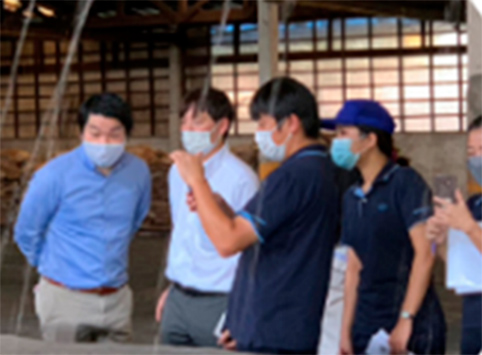
Sumitomo Riko vigorously promotes dialogue with its suppliers, and we are also progressively ascertaining the status of the CSR activities of our secondary suppliers, in addition to those of our primary suppliers. In particular, as for our efforts in the area of natural rubber, which we procure mainly from Southeast Asia, our officers and employees in charge of procurement visit processing plants in the supply chain to confirm that there are no particular problems related to labor practices, human rights, health and safety, and environmental protection.
Specifically, since 2016, we have audited natural rubber plantations and natural rubber processing manufacturers in Southeast Asian countries, and in 2023 we audited three natural rubber plantations and natural rubber processing manufacturers in Indonesia, India, and Thailand.
Going forward, we will continue to conduct audits in cooperation with our overseas procurement bases.
Specifically, since 2016, we have audited natural rubber plantations and natural rubber processing manufacturers in Southeast Asian countries, and in 2023 we audited three natural rubber plantations and natural rubber processing manufacturers in Indonesia, India, and Thailand.
Going forward, we will continue to conduct audits in cooperation with our overseas procurement bases.

Furthermore, in July 2022, we joined the Global Platform for Sustainable Natural Rubber (GPSNR*). We have also developed a Sustainable Natural Rubber Procurement Policy in 2023, which reflects the policy framework approved at the GPSNR General Assembly in September 2020.
Reports on our activities based on the policy are available on the GPSNR website.
There are more than a dozen major types of raw rubber used by our Group globally, of which natural rubber alone accounts for more than 40%. By endorsing the GPSNR policy, we will ensure the traceability and sustainability of our natural rubber procurement and aim to provide a stable supply of high-quality products into the future.
*Global Platform for Sustainable Natural Rubber
Reports on our activities based on the policy are available on the GPSNR website.
There are more than a dozen major types of raw rubber used by our Group globally, of which natural rubber alone accounts for more than 40%. By endorsing the GPSNR policy, we will ensure the traceability and sustainability of our natural rubber procurement and aim to provide a stable supply of high-quality products into the future.
*Global Platform for Sustainable Natural Rubber
Related information
Related information
Related information
Stance on conflict minerals
In the Democratic Republic of the Congo (DRC) and neighboring countries, section 1502 of the Dodd-Frank Wall Street Reform and Consumer Protection Act came into force with the aim of stopping armed groups engaged in abuse of human rights from funding through the sale of certain minerals in 2012. This would impose reporting requirements to the U.S. Securities and Exchange Commission (SEC) on U.S.-listed companies that use the 3TG (gold, tantalum, tin, and tungsten), which are designated as conflict minerals. We conducted a survey to ascertain usage of such minerals by our Group companies and our suppliers. The survey indicated that a number of tin, tantalum, and tungsten compounds are used in our production processes, but that production and trade of none of them have contributed to conflict financing.
Furthermore, we have expanded the scope of our investigation to include minerals other than the 3TG (cobalt and mica) and high-risk areas (CAHRAs) outside the DRC and neighboring countries, and we will continue to investigate and, with the cooperation of our business partners, respond to customer reporting in good faith.
Furthermore, we have expanded the scope of our investigation to include minerals other than the 3TG (cobalt and mica) and high-risk areas (CAHRAs) outside the DRC and neighboring countries, and we will continue to investigate and, with the cooperation of our business partners, respond to customer reporting in good faith.
Crisis Management
Sumitomo Riko has compiled a list containing the basic information regarding our global suppliers and continues to promote the establishment of foundations for swift information gathering and dissemination at times of earthquakes and other disasters. In 2016, we organized information on our major raw materials and other suppliers, and introduced a safety confirmation system that allows us to send out information to suppliers in a timely manner in the event of an earthquake or other disaster, and to ask them to respond to whether or not their supplies have been affected. Furthermore, we have established a system for prompt initial response and subsequent countermeasures, such as expanding information on secondary and subsequent suppliers.We have also begun crisis management of the supply chain by providing information to suppliers on cyber-attack by ransomware, a growing risk in recent years, and fire prevention measures.
Going forward, we will continue to promote establishment of business continuity plans (BCPs) worldwide in cooperation with our suppliers and strengthen our crisis management capabilities.
Going forward, we will continue to promote establishment of business continuity plans (BCPs) worldwide in cooperation with our suppliers and strengthen our crisis management capabilities.
Education and Awareness-rasing Activities
The Sumitomo Riko Group has established procurement regulations in Japanese, English, and Chinese and ensures thorough compliance with the regulations, especially with overseas suppliers, through meetings with bases and meetings of procurement managers. In Japan, in response to the Act against Delay in Payment of Subcontract Proceeds, Etc. to Subcontractors (Subcontract Act), the Procurement Division conducts education and awareness programs for each department and each level.
In addition, e-learning programs are regularly conducted for all employees to improve their understanding and awareness. We also ask our suppliers to understand and implement CSR procurement at supplier's meetings and other occasions.
In addition, e-learning programs are regularly conducted for all employees to improve their understanding and awareness. We also ask our suppliers to understand and implement CSR procurement at supplier's meetings and other occasions.

